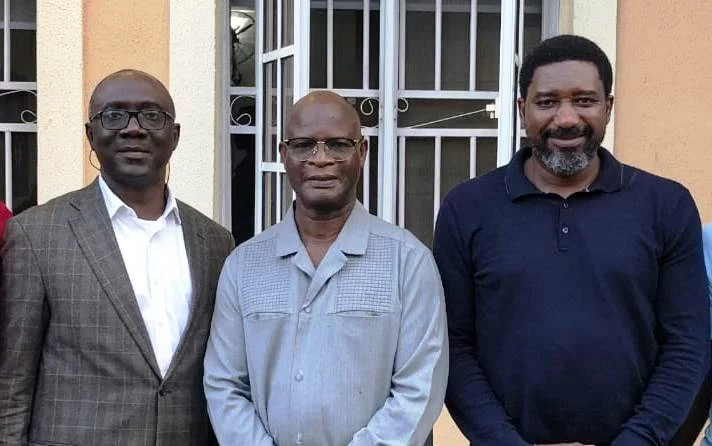Nigeria
Ghanaian Institute and Academy collaborate on the development of IT skills in Africa

Accra Institute of Technology (AIT) in Ghana and Tezza Academy in Nigeria are planning to collaborate to advance IT education.
This was said in a statement made on Tuesday in Abuja by Ms. Oluwatomi Etta, Tezza Academy’s communication specialist.
According to Etta, the collaboration would also improve research, foster talent exchange, and foster cultural understanding between the two universities.
Following a visit of Tezza Academy’s facilities, AIT President Prof. Clement Dzidonu remarked that the collaboration might present prospects for both organisations in terms of internships and employment in both nations.
According to Dzidonu, it would also offer industry-sponsored projects to solve one of the continent’s rising problems with knowledge gaps and the development of highly trained IT employees in all fields.
Dzidonu referred to the academy as a suitable model for educating young people, particularly recent graduates of postsecondary institutions, in the skills required by industry.
He laid the foundation for a prospective cooperation with Tezza Academy and showed a strong interest in launching a Tezza project in Accra.
According to the president, this would enable AIT to take advantage of its reputable reputation and extensive network in Ghana to expedite positions for the program’s alumni.
He claims that among other things, AIT will investigate a Ghanaian Immersive Programme in Accra with a cohort size comparable to Tezza Academy’s present students.
In light of the difficulties university-taught programmes have in retaining graduates, “work out placement facilitation.
The goal of the strategic agreement is to link Tezza Academy’s immersion programme with Ghana’s top students from various colleges, ensuring career paths for young professionals.
The exchange scheme, according to Dzidonu, “could further promote cultural diversity and give students a broader perspective on technology and innovation in different contexts within Ghana and Nigeria.”
Jide Modele, the managing partner of Tezza Academy, stated that the organisation was dedicated to addressing the exodus of highly qualified IT experts.
“These professionals are locally known as the ‘jakpa syndrome,’” he continued, “are found, outfitted, and trained in specialised IT disciplines in conjunction with our global partners.”
The academy attempted to reverse the brain drain, according to Modele, by retaining smart individuals and giving them access to cutting-edge IT opportunities and skills.
This, he claimed, was considerably enhancing Nigeria’s Global Value Chains (GVCs) as a big exporter of human resources.
According to Modele, the goal of the agreement is to encourage student entrepreneurs in their business ventures in order to improve startup incubation programmes and grant possibilities for creative ideas.
He continued, “Tezza Academy provides free tuition and residency programmes that equip young Nigerians with cutting-edge IT skills and guarantee job placements after a three-month intense training.
The Academy has been establishing relationships and providing the high skill sets needed across sectors locally and overseas since 2020.
“It’s enabling trainees to integrate into client locations in a way that successfully addresses the concerns of unemployment and employability in Nigeria.
